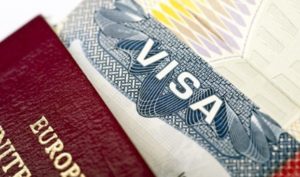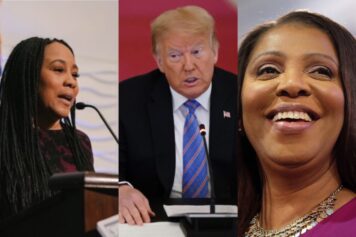
Several key speakers slated to attend energy summit were denied U.S. visas, forcing organizers to cancel the event. (Image courtesy of travel.state.gov.)
A U.S.-Africa energy summit scheduled for late September has been canceled after several African invitees were denied visas, organizers announced this week.
A notice sent to expected attendees on Wednesday, Sept. 6, stated that the two-day event, which was booked to capacity, would not happen “because of the denial of U.S. visas to the vast majority of registered African participants, which, as a result, defeated the purpose of the summit and made it untenable.”
The conference was set to take place at the Monona Terrace in Madison, Wis., on Sept. 18-19, 2017, according to the City of Madison’s website. Organizers with the UW-Platteville International Business Center said the summit would’ve given leaders, researchers, energy firms and investors from sub-Saharan Africa the chance to seriously talk about the limited supply of electricity in their respective countries.
However, the refusal of the U.S. Department of State to issue visas to several key speakers and attendees forced organizers to call off the event.
Conference organizer John O. Ifediora told the Wisconsin State Journal that 80 percent of prospective participants from nations like Ghana, Botswana and South Africa were denied visas because they “didn’t meet the minimum requirements” for one.
Among the list of scheduled speakers were Olivier Kamanzi, the Rwandan head of the Chicago-based Africa Global Chamber of Commerce; the ambassadors to the U.S. from Botswana and Ghana; and the coordinator for former President Barack Obama’s Power Africa program.
Samba Baldeh, a Gambia native and Madison elected official who planned to attend this month’s summit, said the actions of the U.S. Dept. of State have “squandered a great opportunity for energy-deprived nations to work with advanced energy providers of the U.S. and Wisconsin.”
“This is part of a broad policy of the Trump administration to deny, stall and obstruct visa requests regardless of their source,” Baldeh told the newspaper. “This policy isolated the U.S. from the business and culture of the rest of the world.”
AllAfrica.com reported that another U.S.-Africa summit scheduled for March in southern California was also called off, as none of the 60 African business and government leaders were able to obtain a U.S. visa.
“I don’t understand how we’re going to do business with a continent that has 54 countries if we can’t bring them here,” California summit organizer Mary Flowers told the Wisconsin State Journal.
Kevin Brosnahan of the Department of State’s Bureau of Consular Affairs said the most common reason for denials on business or tourism visa applications is that the person didn’t show strong enough ties to his or her home country to compel them to return.
In the wake of the visa snafu, Ifediora said summit attendees can expect their registration fees to be refunded.
“We are working very hard to rectify this problem and reschedule the summit,” he said.


